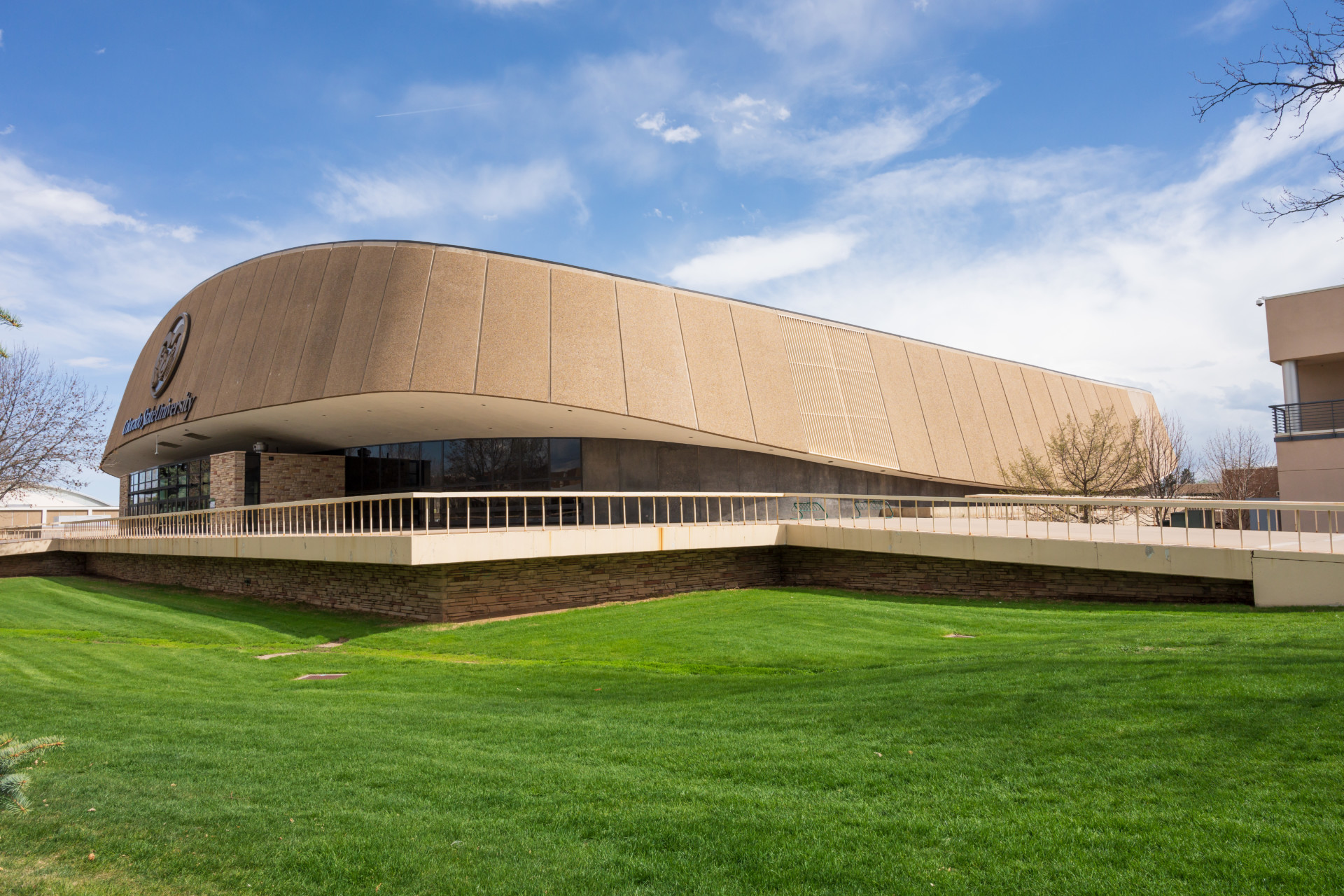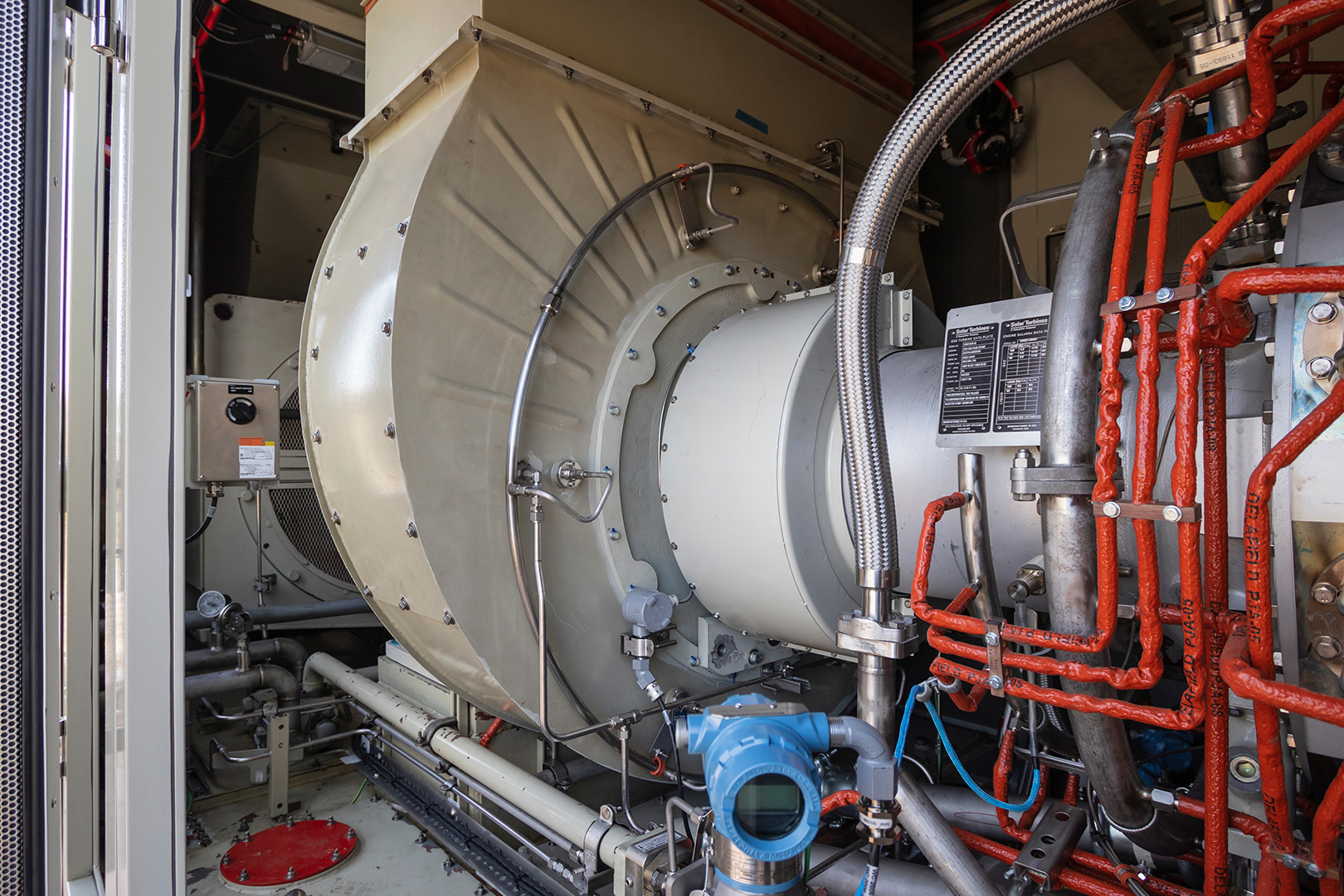Sustainability Leader
Colorado State University makes it four in a row for sustainability, earns fourth consecutive platinum STARS designation story by Nik Olsen video by Hannah Tran published Jan. 26, 2023Colorado State University once again demonstrated it is among the most sustainable higher education institutions in the world by earning its fourth consecutive platinum rating in the Sustainability Tracking, Assessment and Rating System, or STARS.
This most recent rating took effect in January after the Association for the Advancement of Sustainability in Higher Education (AASHE) certified Colorado State’s submission. With a score of 88.13, Colorado State holds the second-highest current score in the U.S. among 580 other participants earning a STARS rating and behind only the University of California-Irvine.
“We are incredibly proud to share our latest STARS report as it truly demonstrates deep commitment to sustainability from our Colorado State University community,” Interim President Rick Miranda said. “Sustainability is a cornerstone of our institution, and it is threaded across everything we do, from education to research and service to our operations. For 152 years, Colorado State has conducted leading edge environmental research in fields ranging from atmospheric science to climate-smart agriculture and provided a rich academic environment in which students learn, embrace and foster the value of sustainability from an environmental, social and economic lens.
Sustainability in all its dimensions will remain a priority for the institution. I thank everyone in our community for their work to earn this fourth consecutive platinum STARS designation because it takes every member of our community to continue this effort.”
Highlights of the report include:
- 100% score in Academics (22.6% of courses include sustainability and all academic departments offer at least one course that incorporates sustainability).
- 100% score in Research (92% of academic departments are engaged in sustainability research with 463 employees participating in sustainability research).
- 97% score in Engagement (CSU students are very engaged and 98.5% indicate that sustainability is important to them).
The latest platinum designation was among the most difficult to achieve because the reporting period spanned the COVID-19 pandemic, which scrambled university operations.
“We certainly had some pandemic setbacks to contend with,” said Tonie Miyamoto, director of communications and sustainability for the Division of Student Affairs and co-chair of the President’s Sustainability Commission. “To see the determination of our students, our staff and our faculty to continue seeking climate solutions, introducing new sustainability courses and majors, and launching new initiatives like our food pantry during the pandemic was truly inspiring and demonstrates that we can and must keep innovating and pushing forward, especially now.”
Leading the way on academics, research
Each of Colorado State’s eight colleges offer at least one sustainability-related major or minor, along with multiple concentration and certificate options. The School of Global Environmental Sustainability offers several multidisciplinary minors open to any student at the university, including Global Environmental Sustainability, International Development, Sustainable Energy, Sustainable Peace and Reconciliation, and Sustainable Water.
“We are incredibly proud to share our latest STARS report as it truly demonstrates deep commitment to sustainability from our Colorado State University community.”
— Interim President Rick Miranda
About 64% of CSU students graduate from a sustainability-focused academic program and/or complete at least one course that is focused on sustainability.
Food security gets critical focus

The Spur campus’s three buildings, with themes of health (Vida), water (Hydro) and food (Terra), are part of a redevelopment and reimagination of the National Western Center with a goal of supporting progress in areas centered on well-being and sustainability.
Among the points of distinction that set Colorado State ahead is the university’s integrated approach to addressing food security, which spans on-campus resources for students and employees, regional outreach across the State of Colorado, and global research and engagement efforts.
The new CSU Spur campus in Denver features the Terra building, which provides a no-cost opportunity for K-12 students and community members to engage with agricultural researchers testing temperature, humidity and carbon dioxide variables to maximize crop yields in growth chambers; take a community cooking class in the teaching and culinary kitchen; tour the green roof and greenhouses; and observe scientists assessing meat, dairy, fruit and vegetable products in food labs. Middle school and high school students can enroll in CAM’s Ag Academy to explore complex problems and potential solutions around food security and agriculture.
The Spur campus’s three buildings, with themes of water (Hydro), health (Vida) and food (Terra), are part of a redevelopment and reimagination of the National Western Center in north Denver. The overarching goal of the campus is to support progress in areas centered on well-being and sustainability, both through active problem solving and by creating opportunities for learners at levels to understand and become part of the process.
On a global scale, scientists in CSU’s Natural Resource Ecology Laboratory conduct studies evaluating long-term impacts of agronomic practices on crop yields and livestock forage, agro-ecological constraints to climate change adaptation and mitigation, and unique land and water management approaches in dynamic, global agricultural systems. Sustainable solutions for local and global food challenges depend upon practical synthesis of this research and engagement with agricultural communities and farmers large and small. The outcome of this work enables farmlands, rangelands and other food production systems to thrive in a changing world, along with the people who depend on them for food, fiber and livelihoods.
Smart planning helps cut carbon emissions

CSU is home to one of the largest geoexchange systems west of the Mississippi, located near the Moby Complex.
On campus, infrastructure investments have paid dividends. In 2020, Colorado State University installed one of the largest geoexchange systems west of the Mississippi. This GeoX system puts the Moby Complex, a 375,000-square-foot multi-purpose athletic facility, which includes Moby Arena where the CSU basketball and volleyball teams compete, in alignment with the University goal to achieve net zero carbon emissions by 2040.
The GeoX system utilizes 342 wells, 550 feet deep, with over 70 miles of piping under the intramural fields, where the Student Recreation Center hosts Sports Clubs, Intramural Clubs, and multiple student activities every day. The GeoX system is a closed-loop underground system that now provides the energy from the ground to heat and cool the building. Since the GeoX system was installed and the building HVAC systems were updated, total energy use for Moby has been reduced by more than 50%. Also, natural gas is no longer used to heat the building.
“The Moby GeoX system was a huge undertaking – the mess and complexity of drilling all those wells in the intramural fields and lots of renovation inside the building,” said Carol Dollard, energy engineer in Facilities Management and co-chair President’s Sustainability Commission. “However, in the end, it is rewarding to see how much performance has improved and we have demonstrated that we can heat a building efficiently without burning fossil fuels.”
Colorado State and its local utility are committed to 100% renewable electricity by 2030. To work toward this goal CSU is continuously expanding on-site solar – there are 42 on-site solar arrays as of this writing. This commitment puts the Moby Complex on a path to net zero carbon emissions by 2030.
Supporting sustainability at CSU


An 80-kilowatt solar array installed on the rooftop of the Lory Student Center and a 3.5-megawatt turbine to support hydrogen combustion research are just two ways CSU has benefited from outside support.
Sustainability efforts at Colorado State have long benefited from the support of alumni, foundations and friends of the institution. In June, a 3.5-megawatt turbine was donated to Colorado State University by San Diego-based Solar Turbines and will support hydrogen combustion research at the CSU Energy Institute.
An 80-kilowatt solar array installed on the rooftop of the Lory Student Center in 2021 is Colorado State University’s first student-funded solar array.
Learn more about private support for sustainability scholarship, research and service.
Sustainability lives in each CSU college
Examples of sustainability, while not all included in the STARS 2.2. report, can be found across campus and in each of CSU’s eight colleges and SoGES.
College of Agricultural Sciences: Engages students in participatory learning through 48 sustainability-focused academic programs and a network of 10 research centers around the state, preparing them to meet global challenges in food safety, food security, wellness and economic prosperity through the sustainable use of natural resources.
College of Business: Has a college mission of focusing on Business for a Better World, encompassing developing the next generation of business leaders to create sustainable solutions balancing social, environmental and economic needs. The college also offers the Impact MBA, a STEM-designated, sustainability-focused degree to help professionals across industries address our most pressing needs from climate change to food insecurity.
College of Health and Human Sciences: The Department of Design and Merchandising focuses on sustainability and social responsibility in the apparel industry and in the Department of Construction Management, sustainability is part of the industry standard and is integrated throughout the curriculum. The College’s Institute for the Built Environment consults on developing healthy, sustainable buildings and communities.
College of Liberal Arts: Has 126 courses that focus on or include sustainability, an environmental studies in liberal arts minor program, a summer program in environmental humanities, and a Ph.D. program in environmental politics and policy in the political science department.
College of Natural Sciences: Advances sustainability at every level – from the chemical development of infinitely recyclable plastics to the physics behind new solar energy technology, to investigating how ecosystems respond to climate changes – we infuse sustainability throughout our education programs, research, and community outreach.
College of Veterinary Medicine and Biomedical Sciences: Home to an environmental health program as well as the CSU Honeybee Veterinary Medicine Club and Center for Environmental Medicine.
School of Global Environmental Sustainability: Offers an interdisciplinary minor in global environmental sustainability and supports interdisciplinary research teams to address the world’s most pressing sustainability issues. The school positions CSU to address the many interrelated challenges to global sustainability. Issues include food security, poverty, inequality, water quality and use, desertification, clean energy, climate change, biodiversity, globalization, industrial ecology, sustainable engineering, population growth, and urbanization.
Walter Scott, Jr. College of Engineering: Dozens of faculty members conduct research related to environmental sustainability including decarbonization, water management, and the food-energy-water nexus. The college is home to the CSU chapter of Engineers Without Borders, called Rams Without Borders, and significant climate/weather research through one of the nation’s premier Atmospheric Science departments and the Cooperative Institute for Research in the Atmosphere, or CIRA, which is a partnership with NOAA.
Warner College of Natural Resources: Offers 161 courses that focus on or include sustainability as well as a master’s degree and Ph.D. in ecosystem sustainability.
About STARS
With more than 1,131 registered participants now registered in 40 countries, AASHE’s STARS program is the most widely recognized framework in the world for publicly reporting comprehensive information related to a college or university’s sustainability performance. Participants report achievements in five overall areas: 1) academics and research 2) engagement, 3) operations, 4) planning and administration, and 5) innovation and leadership.
Unlike other rating or ranking systems, this program is open to all institutions of higher education, and the criteria that determine a STARS rating are transparent and accessible to anyone. Because STARS is a program based on credits earned, it allows for both internal comparisons as well as comparisons with similar institutions.